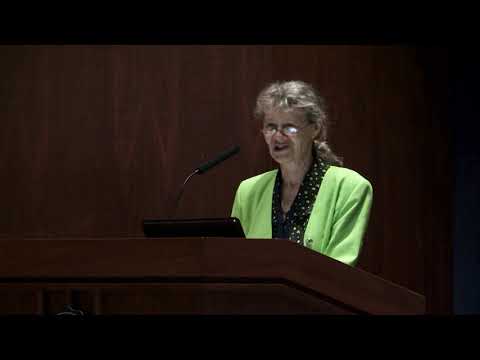
What Does ‘Made in the Image of God’ Mean?
Marie I. George, Ph.D. (St. John’s University)
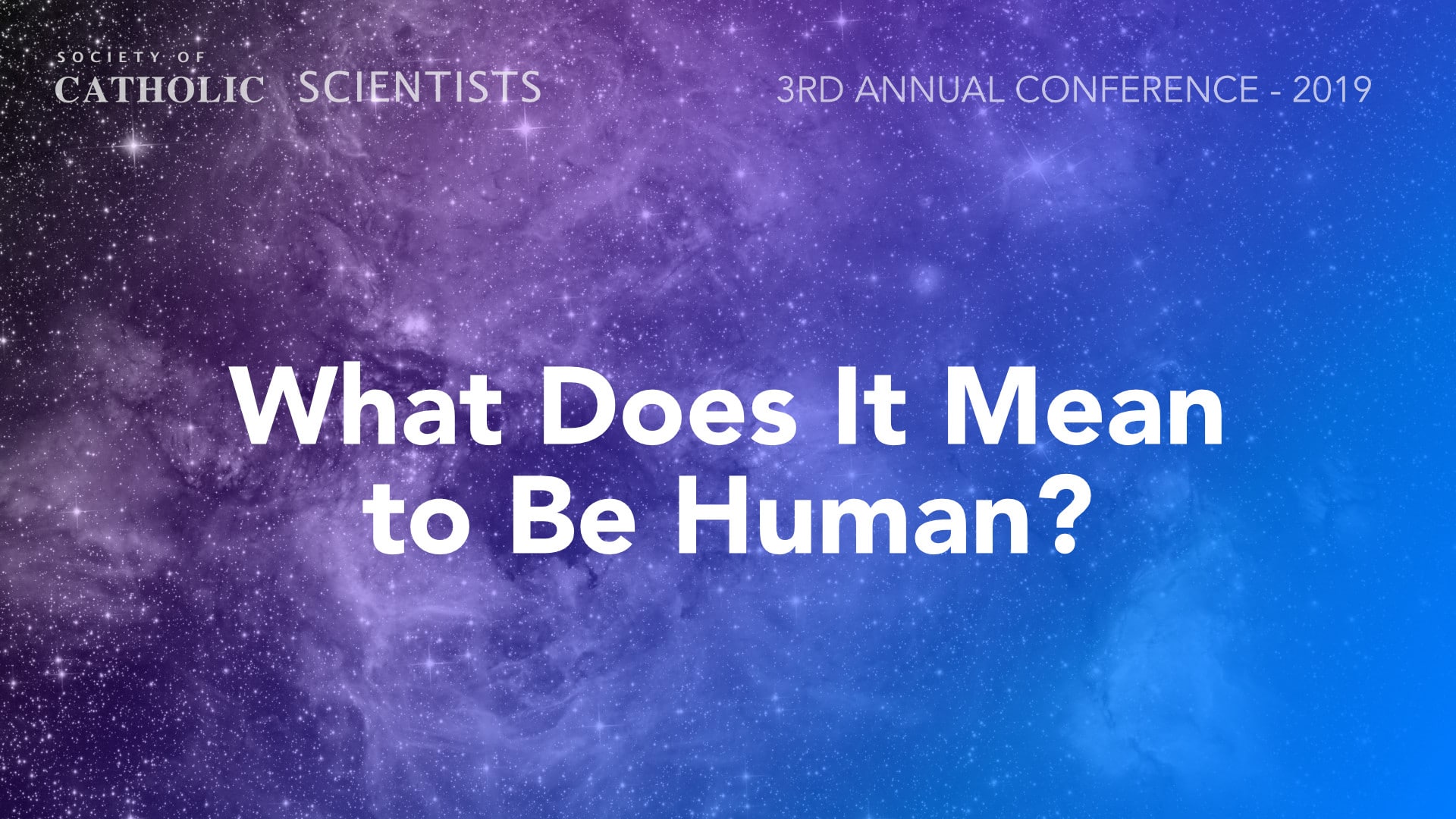
The theme of the conference was “What does it mean to be human?” This included such questions as What is “human nature”? When did it appear? Did Neanderthals and other archaic species of Homo have it? When does an individual human life begin? Can human nature be changed by genetic engineering? In what ways are humans unique on earth? Are we unique in the cosmos? These questions were explored from the point of view of biology, paleoanthropology, philosophy, theology, and other disciplines.
The third annual conference of the Society of Catholic Scientists was held on June 7-9, 2019 at the University of Notre Dame in South Bend, IN, USA. The theme of the conference was “What does it mean to be human?” This included such questions as What is “human nature”? When did it appear? Did Neanderthals and other archaic species of Homo have it? When does an individual human life begin? Can human nature be changed by genetic engineering? In what ways are humans unique on earth? Are we unique in the cosmos? These questions were explored from the point of view of biology, paleoanthropology, philosophy, theology, and other disciplines.

Marie I. George, Ph.D. (St. John’s University)
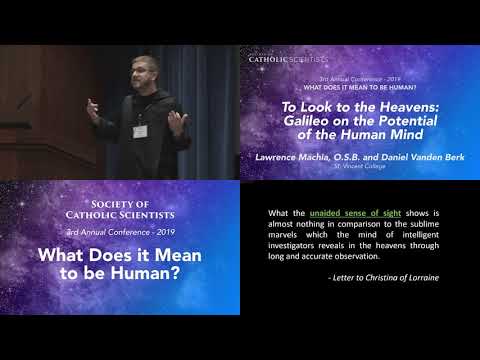
Br. Lawrence Machia, O.S.B. (St. Vincent College)
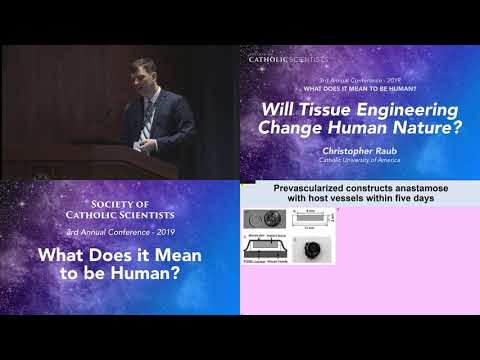
Christopher Raub, Ph.D. (Catholic University of America)
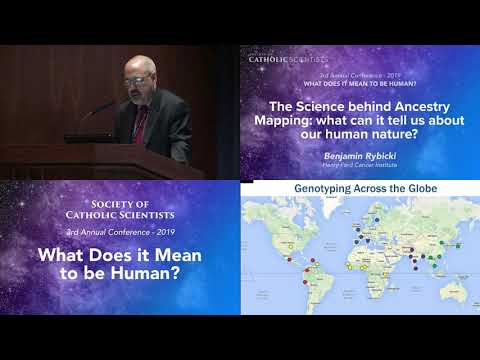
Benjamin Rybicki, Ph.D. (Henry Ford Cancer Institute)
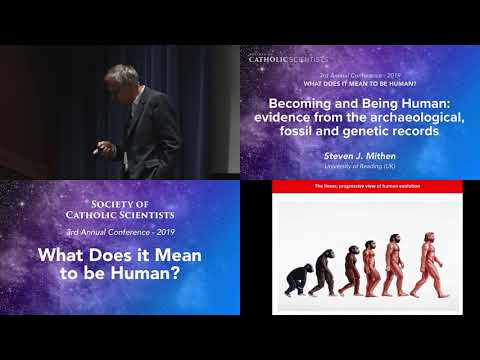
Steven J. Mithen, Ph.D. (University of Reading, UK) [Guest Lecture]
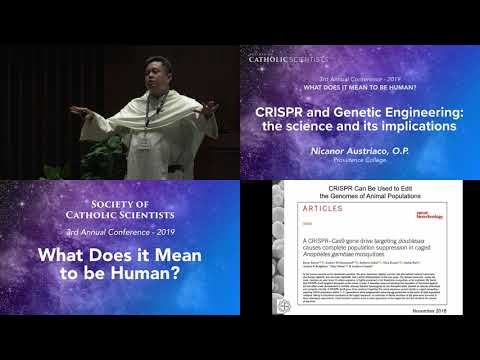
Fr. Nicanor Austriaco, O.P., Ph.D. (Providence College)
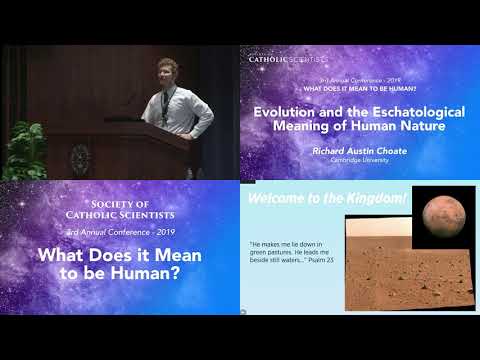
Richard Austin Choate (Cambridge University)
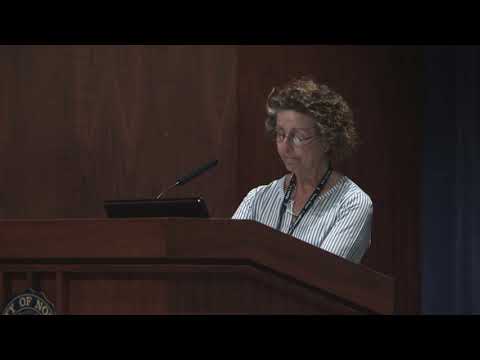
Sonsoles de Lacalle, Ph.D. (Ohio University)
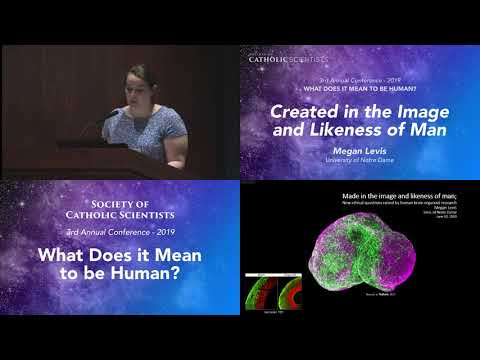
Megan Levis (University of Notre Dame)
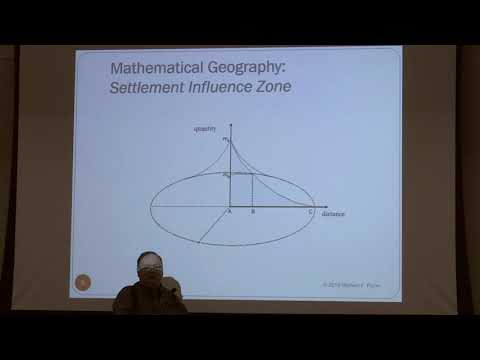
After-banquet talk by Michael Flynn, author of Eifelheim
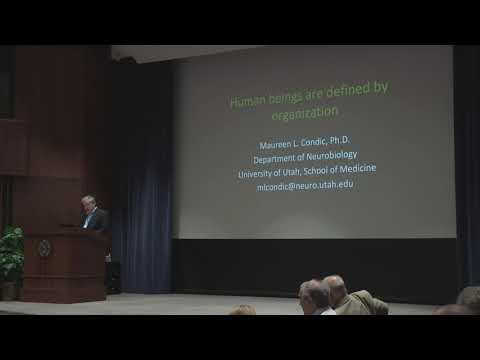
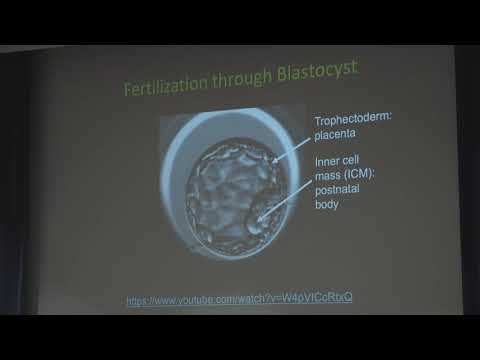
Maureen L. Condic, Ph.D. (University of Utah)